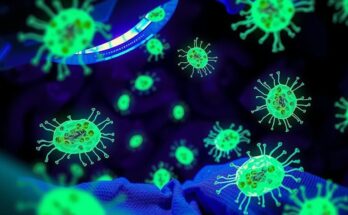- Researchers discovered that HBV worsens liver inflammation without causing it.
- Statins like pitavastatin could reduce liver cancer risk in HBV patients.
- Human studies imply statin therapy lowers risks of hepatitis and liver cancer.
Understanding HBV’s Role in Liver Cancer Development
Hepatitis B virus (HBV) infection has long been linked to liver cancer risk, specifically hepatocellular carcinoma (HCC), yet the mechanism behind this association has remained unclear. Recent research out of Mass General Brigham has revealed interesting insights on this front. Surprisingly, instead of directly causing liver inflammation or cancer, HBV seems to exacerbate inflammation and increase susceptibility to carcinogens in the environment, raising the risk for liver cancer.
Statin Therapy and Its Impact on Liver Health
The study’s findings underscore the potential health risks of environmental carcinogens, particularly in individuals already infected with HBV. Using a mouse model, the research team observed that when these mice were exposed to diethylnitrosamine (DEN), a carcinogen present in tobacco smoke, fried foods, and alcohol, the risk of developing liver cancer escalated dramatically. They noted a surge in interleukin-33 (IL-33), an inflammatory marker, which is crucial for liver cancer development. The researchers successfully used pitavastatin, a statin medication, to inhibit IL-33 levels and consequently reduced risks for chronic hepatitis and liver cancer.
Intersecting Data on Carcinogens and Statin Use
Taking their research a step further, the team conducted human studies, comparing IL-33 levels among patients with HBV-induced hepatitis and healthy individuals. They found elevated IL-33 levels in the HBV group, hinting at a significant correlation. Their analysis included data from over 200 million patients and indicated that those receiving statin therapy faced a considerably lower risk of developing both hepatitis and liver cancer compared to patients on other cholesterol-lowering medications. This could pave the way for new therapeutic strategies combining statins with current HBV treatments.
In summary, research reveals a complex relationship between HBV infection and liver cancer, suggesting that limiting carcinogen exposure could be beneficial for high-risk individuals. Statins appear to play a pivotal role in mitigating these risks, offering a potential new avenue for treatment in HBV-infected patients. Understanding these interactions could lead to improved therapeutic outcomes in the fight against liver cancer.




